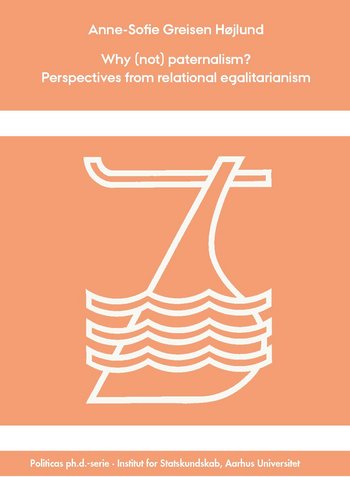Anne-Sofie Greisen Højlund
Why (not) paternalism? Perspectives from relational egalitarianism

Should the state interfere with people’s choices to consume tobacco, alcohol and recreational drugs, to gamble away their income instead of saving for retirement, and to drive a car without wearing a seat belt out of a concern for their own good? In other words, should it (sometimes) act paternalistically? This dissertation explores this question from the perspective of relational egalitarianism. Key representatives of this position have objected to paternalistic interference, accusing it of being insulting, demeaning and disrespectful – in essence, of failing to treat those subjected to it as equals. However, it seems that adopting a hands-off policy according to which people can choose freely from an unrestricted choice set inevitably leads to situations where some will be left irreversibly worse off than others – and thus not be treated as equals in this sense. Catering to both sides of the issue, the dissertation (re)constructs and responds to three distinct objections to paternalism that follow from a principled commitment to relational egalitarianism: a concern with expressing that some are less able agents than others; a concern with the potentially stigmatizing effects of such expressions; and a concern with the underlying attitudes (or beliefs) that render paternalistic action rational. It shows that paternalism is compatible with relational egalitarianism under certain conditions, sometimes effectively furthering the ideal, and more so than alternative measures.
![]() Ophavsretten tilhører Politica. Materialet må ikke bruges eller distribueres i kommercielt øjemed.
Ophavsretten tilhører Politica. Materialet må ikke bruges eller distribueres i kommercielt øjemed.